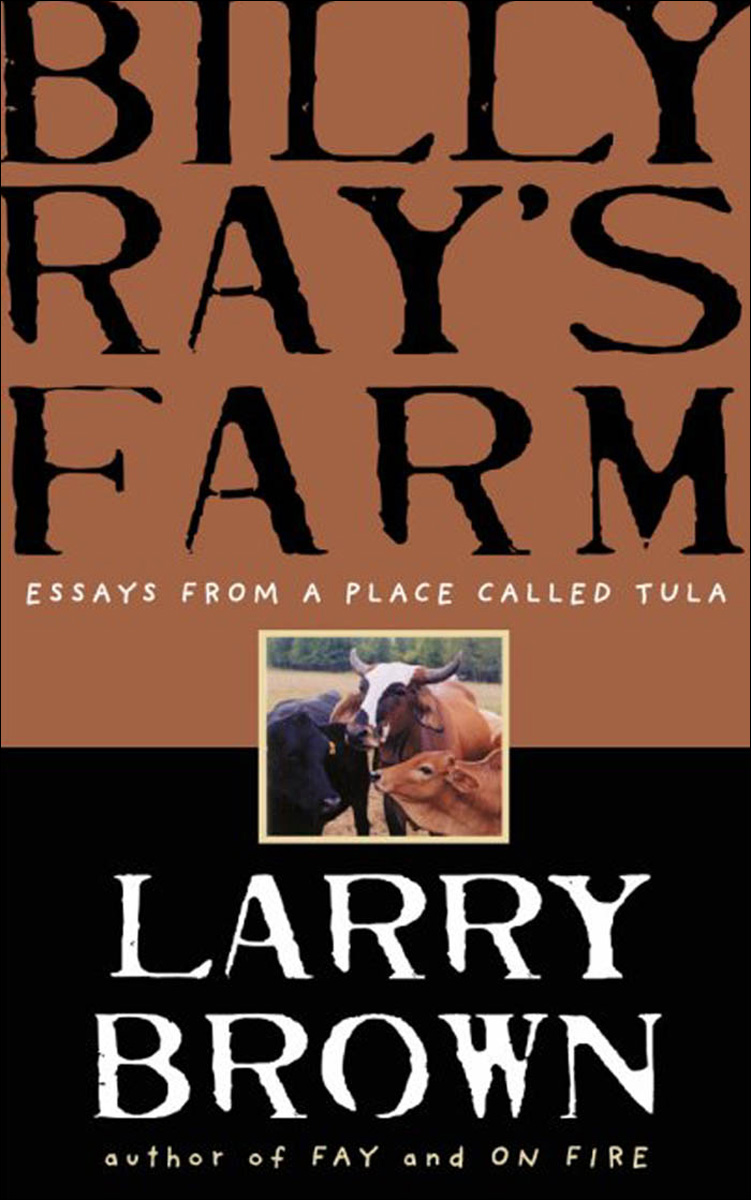
Billy Ray's Farm
کتاب های مرتبط
- اطلاعات
- نقد و بررسی
- دیدگاه کاربران
نقد و بررسی

March 5, 2001
Celebrated for depicting the dark, seamy side of Southern life, Mississippi novelist Brown (Fay; Father and Son) turns to sunnier topics in this loose-jointed collection of essays paying tribute to the people and places that influenced his writing. The title piece, a rueful reflection on son Billy Ray's persistent bad luck with cattle, sets the tone: despite dead calves, misbehaving bulls, rampaging coyotes and dilapidated fences, father and son remain optimistic. "Billy Ray's farm does not yet exist on an earthly plane," writes Brown. "On Billy Ray's farm there will be total harmony, wooden fence rows straight as a plumb line, clean, with no weeds, no rusted barbed wire." As Brown details his own efforts to impose harmony on his farm by building a house ("Shack"), protecting his stock from predators ("Goatsongs"), clearing brush and stocking fish ("By the Pond"), he balances pastoral odes with a clear-eyed accounting of the costs of country living. That realism gives Brown's narratives a plainspoken truth that makes more believable the simple pleasures he takes in these simple tasks. The writer's home life in Oxford, Miss., is more compelling than his chronicles of book tours and writers conferences ("The Whore in Me"), but the latter is kept to a minimum. More successful are the tributes to literary mentors Harry Crews and Madison Jones and to the men who taught him "the fine points of guns and dogs" after his father's death, when Brown was 16. These humble personal essays, which provide a glimpse at the long apprenticeship of a writer who came up the hard way, leave the reader hoping Brown will soon tackle a full-blown autobiography. (Apr.)Forecast: Brown receives rave reviews for his novels and has a devoted following. This should sell well for Algonquin, especially in the South.

March 1, 2001
In the prolog to this collection of essays, Brown (Fay, On Fire, Big Bad Love) states, "You can't pick where you're born or raised. You take what you're given, whether it's the cornfields of the Midwest or the coal mines of West Virginia, and you make your fiction out of it. It's all you have. And somehow, wherever you are, it always seems to be enough." His essays underscore this sense of place with descriptions of life on his land near Oxford, MI. These essays read much like good fiction. They offer intrigue (will he get the free fish as part of the big deal on the spillway at Enid Reservoir or bag the coyote that has torn open the throats of their baby goats?), humor (holding the tail of his son's young Holstein bull while they try to get it into the pasture at Billy Ray's farm), and experience (with mentors, literary conferences, and book-signing tours). Recommended for all libraries. Sue Samson, Univ. of Montana Lib., Missoula
Copyright 2001 Library Journal, LLC Used with permission.

March 1, 2001
Brown, an ex-marine and ex-fireman who hails from Faulkner's hometown of Oxford, Mississippi, brings a somewhat different voice to modern southern writing, which is exemplified in this latest collection of essays. Like his fiction, the author's essays are often startling, maybe a bit brusque, yet his smooth narrative style keeps the reader's attention until the end. Whether the subject is a heifer giving birth or something more mundane, such as a book signing, Brown's take on the subject is unique and highly readable. As the author of seven previous books and the recipient of many awards, he has been garnering a lot of press lately, so librarians may want to have a copy or two on hand. (Reprinted with permission of Booklist, copyright 2001, American Library Association.)

























دیدگاه کاربران